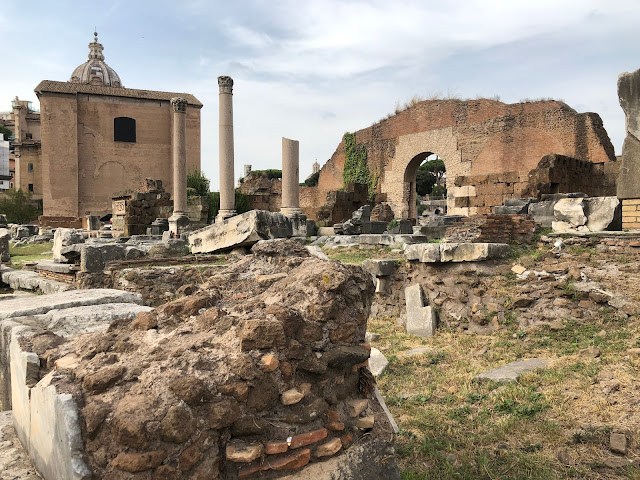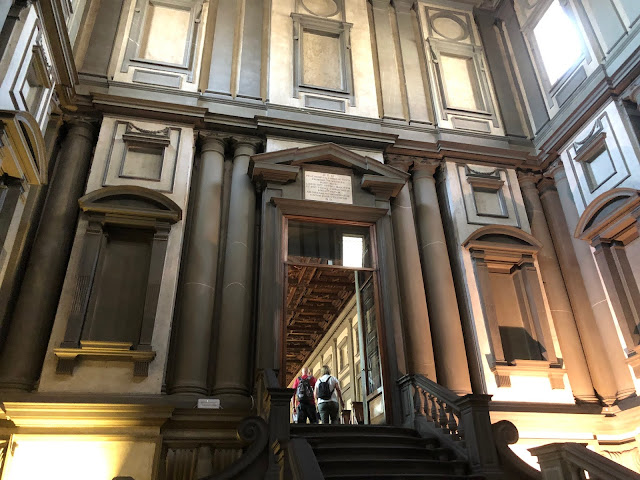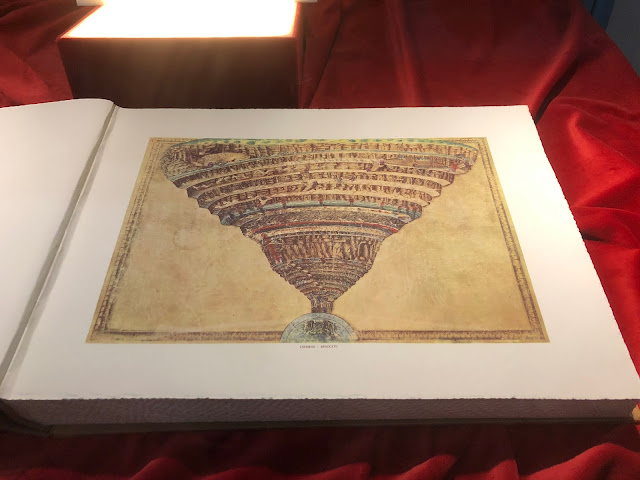【ローマ】フォロ・ロマーノと古代ローマ② Roma - Foro Romano and Ancient Roma : Part-2
フォロ・ロマーノを進んでいくと、右手のエミリアのバジリカが見えてくる。
と言っても、建物はほとんど残っておらず、柱や壁の跡が残っているだけだ。
このバジリカは、紀元前179年にエミリア一族によって建てられて、後にアウグストゥス帝の時代に再建された建物。
Follow the Roman Forum and you will see Emilia's Basilica on your right.
That said, there are few buildings left, only pillars and wall marks.
This basilica was built by the Emilia clan in 179 BC and later rebuilt during the time of Augustus.
カエサルの死後、わずか18歳でその後継者に指名されて、一躍中心人物になったアウグストゥスは、ライバルのアントニウスを退けて、紀元前27年に共和制への復活を宣言した。
しかし、逆に元老院から全権を掌握することを求められて、この時から、古代ローマの帝政が始まったとされている。
五賢帝の時代の歴史家スエトニウスの『ローマ皇帝伝』などによると、アウグストゥスは常に自分が目立たないように、慎重に振る舞う人物であったようだ。
Augustus, who was appointed as a successor at the age of only 18 after Caesar's death and suddenly became a central figure in ancient Rome, declared a resurrection to the republic in 27 BC, rejecting his rival Antonius.
However, on the contrary, the Senate demanded that he take full control, and it is said that the imperial rule of ancient Rome began from this time.
According to Suetonius's "Roman Emperor's Biography", a historian of the Five Good Emperors' era, Augustus was always a person who acted cautiously so as not to stand out.
そのアウグストゥスを後継者に指名したカエサルは、それとはまるで逆の野心家だった。
カエサルは、初めはクラッスス、ポンペイウスらと共に三頭政治を行い元老院に対抗したが、クラッススの死後はポンペイウスを破り、元老院を武力で制圧して、終身独裁官となった。
しかしその強引な手法は多くの敵を作り、腹心だったブルトゥスらにも裏切られて、紀元前44年に暗殺されてしまった。
アウグストゥスが慎重に振舞ったのは、カエサルのことを反面教師と見ていたからなのかもしれない。
Caesar, who nominated Augustus as his successor, was just the opposite ambition.
At first, Caesar triumvirate with Crassus and Pompey to oppose the Senate, but after Crassus's death, he defeated Pompey and overwhelmed the Senate by force, becoming a lifelong dictator.
However, his brute force method created many enemies, betrayed by his confidant Brutus and others, and was assassinated in 44 BC.
Augustus may have acted cautiously because he saw Caesar as a teacher on the other hand.
カエサルは、自ら歴史家となって後世に自分の業績を伝えようとしたのだろうか、『ガリア戦記』と『内乱期』という本を残している。
カエサル側の視点にたった歴史だが、表現上では自分のことを”カエサル”と記して、第三者的な視点で書かれた歴史である、という体裁にはなっている。
歴史は書いたもの勝ち。そのようにカエサルは考えていたのだろうか。
Perhaps Caesar himself became a historian and tried to pass on his achievements to posterity, leaving behind the books "Galia Senki" and "Civil War".
The history is only from the perspective of Caesar, but in terms of expression, it is written as "Caesar" and the history is written from a third-party perspective.
History wins what you write. Caesar may have thought that way.






コメント
コメントを投稿